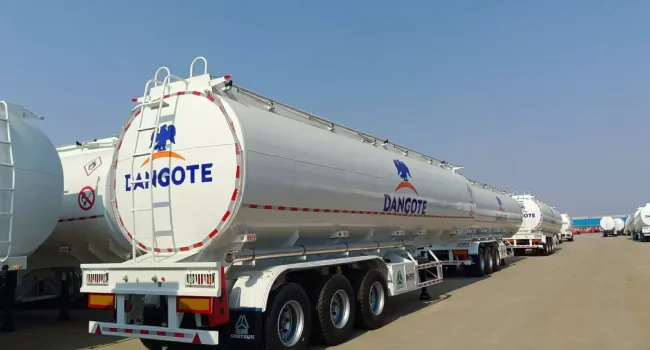Dangote Petroleum Refinery has announced a reduction in the ex-depot price of petrol, lowering it from ₦880 to ₦840 per litre, effective Monday, June 30, 2025.
The ₦40 drop was confirmed by the refinery’s spokesperson, Tony Chiejina, and comes just a week after the Lagos-based facility had raised the ex-depot price to ₦880 per litre.
Retailers such as MRS Oil & Gas, Ardova Plc, Heyden, and others with special supply agreements with the Dangote Refinery are expected to adjust their pump prices accordingly — bringing them below the ₦900 mark.
The price cut follows a decline in global crude oil prices as tensions between Israel and Iran eased. Brent crude fell by 16 cents (0.24%) to close at $67.61 per barrel — down from around $80 — after a ceasefire was brokered following U.S. strikes on Iran’s nuclear facilities.
The refinery’s price adjustment also comes amid growing concerns from downstream operators over Dangote’s aggressive expansion into distribution.
On June 15, the $20 billion, 650,000-barrels-per-day capacity refinery announced the free distribution of petrol and diesel to marketers and bulk users across the country, set to begin on August 15, 2025. As part of the initiative, Dangote has acquired 4,000 brand-new Compressed Natural Gas (CNG)-powered tankers for product delivery.
In addition, the company is offering a two-week credit facility — under a bank guarantee — to buyers purchasing at least 500,000 litres of fuel, allowing them to receive an equal volume on credit.
However, these moves have drawn sharp criticism from petrol marketers and independent truck operators, who fear the new model could marginalize depot owners, third-party logistics providers, and smaller retail outlets.
Nigeria, Africa’s most populous country, has long struggled with energy insecurity. Decades of underinvestment and mismanagement have left state-owned refineries either dormant or severely underperforming, making the country heavily reliant on imported petroleum products.
Before the Dangote Refinery began operations, the Nigerian National Petroleum Company (NNPC) was the primary importer of refined fuel.
Since the removal of fuel subsidies by President Bola Tinubu in May 2023, the price of petrol has surged from around ₦200 per litre to as high as ₦1,000, deepening the economic strain on millions of Nigerians who depend on petrol to power both vehicles and household generators amid a chronically unreliable electricity supply.
The Dangote Refinery, billed as Africa’s largest, is now at the center of the country’s energy transition efforts — a move seen by many as both a necessary shift and a threat to the existing fuel distribution ecosystem.


